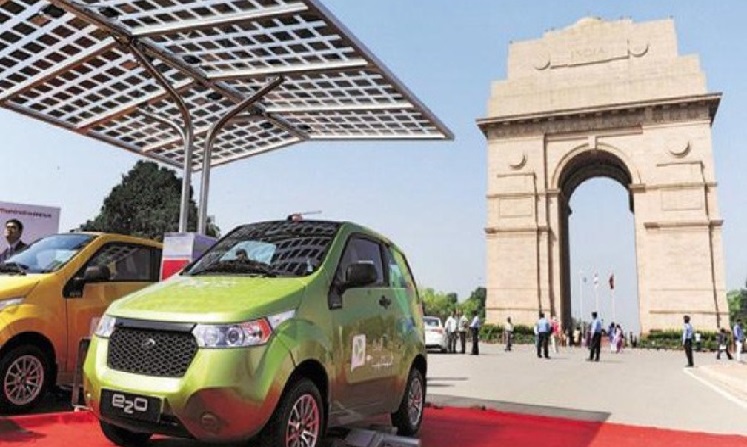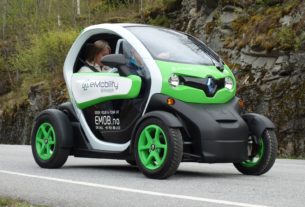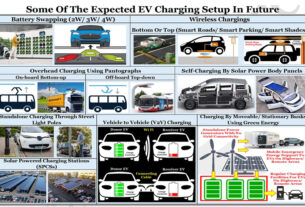With a multi-pronged approach and dedicated measures to ensure implementation, the Delhi EV policy aims to induct five lakh electric vehicles in the next five years, including 35,000 vehicles and 200 charging stations in the first phase, to make Delhi the ‘EV capital’ of India.

The Government of the National Capital Territory of Delhi (GNCTD) has notified its aspirational electric vehicle policy aimed at achieving reductions in air pollution out of automobiles and boost economic growth and employability in the city’s transportation and EV sector. Noting that the policy has taken shape after huge consultations with various stakeholders and experts in the past two-three years, Chief Minister Arvind Kejriwal claimed it to be one of the most progressive EV policies in the world, which aims to make the city a world leader in the field of e-mobility and EV ecosystem.
The policy takes a multi-pronged approach in encouraging faster adoption of EVs in the city. This includes a defined target of 25 percent of battery-electric vehicles (BEVs) in total vehicles registrations in the city by 2024; incentivising buyers who would like to opt for an EV of any kind including electric two-wheelers, three-wheelers and e-rickshaws over and above the incentives under the Central government’s ‘FAME India’ Phase 2 scheme. Further, for the first time in the country, a scrapping incentive for old two-wheelers in favour of an electric two-wheeler is envisaged in the policy.
“We have held several discussions on the policy in the last 2.5 years. We held consultations, called experts from across the country, studied the electric vehicle policies of nations all over the globe and took all the good points for the creation of our policy. But there may be some lags in the policy as nothing is perfect. This policy shows the intent of the Delhi government; that we want to go in a better direction. Right now, this policy is for three years, after which it will be reviewed. If required, we will reframe and change this policy from time to time”*
Arvind Kejriwal, Chief Minister, Government of National Capital Territory of Delhi (GNCTD)
Other key highlights include interest waivers on the purchase of electric commercial vehicles, registration fees and road tax waiver on newly registered electric vehicles, support to public or shared transport and goods carriers, and creation of a robust charging infrastructure in the city. The policy also mentions a slew of monitoring mechanism to ensure timely implementation of the policy. A state electric vehicle board chaired by transport minister will be constituted to oversee the implementation of the policy, while a dedicated EV Cell and a State EV Fund will be set up to aid the policy.
Key takeaways from the EV Policy of Delhi Government
- A target set to ensure that about 25 percent of the newly registered vehicles in Delhi NCT by the year 2024 are BEVs. At present, the EV share is just 0.2 percent.
- A subsidy up to INR 30,000 for electric two-wheeler consisting of INR 5,000 pet kWh of battery capacity.
- A purchase incentive of INR 30,000 per vehicle for e-rickshaws, e-autos, and electric load carrying three-wheelers, including those powered by lead-acid batteries.
- For purchase of e-rickshaws and e-carts with advanced batteries will be provided with a interest subvention of 5 percent on loans or purchase schemes.
- Upto INR 1.5 lakhs purchase incentive for electric cars, in which INR 10,000 for every kWh of battery capacity.
- A scrappage incentive of INR 5,000 for scrapping old two-wheelers in favour of electric two-wheelers.
- A scrappage incentive of INR 7,500 for scrapping and de-registering old auto rickshaws and goods carriers (LCVs) by buyers of electric autos and e-ICVs respectively.
- Appropriate incentives and other support to ensure pure electric buses constitute at least 50 percent of all new stage carriage buses procured by the city fleet, starting with the induction of 1000 e-buses by 2020.
- A purchase incentive of INR 30,000 to first 10,000 electric goods carriers registered in Delhi, along with an interest subvention of 5 percent on loans or hire purchase schemes for electric CVs.
- A network of 200 charging stations will be created in Delhi NCT, with at least one charging station for every three-km radius.
- A 100 percent subsidy for purchase of charging equipment up to INR 6,000 per charging point.
- Open permit system for e-autos.
- Waiver of road tax and registration fees for electric vehicles.
- Establishment of State Electric Vehicle Board and a dedicated ‘EV Cell’ for administering the policy and its implementation.
- Setting up of skill centres for training and creation of jobs in the EV ecosystem.
- Setting up of recycling ecosystem for batteries.
- Creation of a non-lapsable, umbrella ‘State EV Fund’ created through through air ambience fund, levy of additional taxes, cess, and fees on inefficient or polluting vehicles.
Source: Delhi Electric Vehicles Policy, 2020 document dated 07.08.2020. *As quoted in The Hindu.




